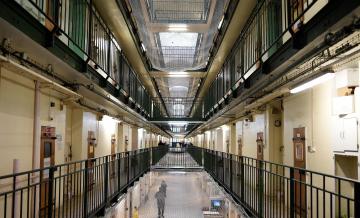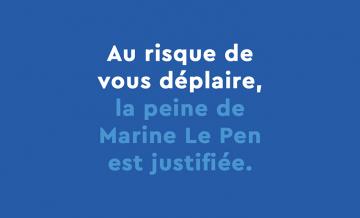As former Ministers of Defence or leading military officials, each of us has spent sleepless nights contemplating the horrific consequences of a terrorist attack with a nuclear weapon in one of the world’s great cities. Such an attack would result in hundreds of thousands--or possibly millions--of immediate casualties and widespread panic. Leaders and citizens would face long-term global economic and security repercussions.
The good news: We know how to prevent this. The most important step for stopping terrorists from acquiring a nuclear bomb is to prevent them from getting the essential nuclear materials needed to build one. These materials – plutonium or highly enriched uranium – are difficult to make, requiring large investments and major industrial infrastructure, capabilities which are still the domain of nations. Terrorists would need to steal these materials or buy them on the black market.
The bad news is that we are not doing nearly enough to prevent nuclear terrorism. Today, nearly 2,000 metric tons of plutonium and highly enriched uranium are stored in hundreds of facilities in 25 countries, much of it poorly secured. Despite this risk, astonishingly, there is no effective international system for how these materials should be secured.
In other areas where we have shared international risks there are strong international standards, with oversight and accountability. In civil aviation, for example, states can decide whether or not to let airlines land at their airports based on whether they comply. Yet when it comes to the world’s most dangerous materials – plutonium and highly enriched uranium – there is no similar security system. That leaves us all at risk from the failure of a single weak link.
Several important instruments provide guidance to states on nuclear materials security, including the International Atomic Energy Agency’s voluntary guidelines and the Convention on the Physical Protection of Nuclear Materials. These instruments, however, fall far short of a system. They don’t set standards; they don’t have a means for holding states accountable for lax security; and they only apply to a fraction of all weapons usable nuclear materials—the 15 percent used for peaceful, civilian applications.
Why? Of that 2,000 metric tons of weapons-usable material, 85 percent is categorized as military or non-civilian—and not even subject to the limited guidelines that do exist.
As the next Nuclear Security Summit in The Hague nears, it is time to call on our leaders to create the international system we need to protect us from the unthinkable. At this Summit, it will be particularly important for the leaders of nuclear-armed states to commit to actions that raise confidence in the security of their nuclear materials in military or other non- civilian uses (the 85 percent). No one would have confidence in an international civil aviation system if it only applied to 15 percent of the planes that fly. Why would we design or accept a nuclear materials security system that applied only to a small fraction of the materials that could be used to take out an entire city and wreak havoc across the globe?
Many assume that military materials must be held to a higher security standard than civil nuclear materials. Our real world experience suggests the contrary—as does the record of recent incidents. If the United States could mistakenly fly six nuclear weapons cross country, have missile launch officers fall asleep on the job with the doors to launch control facilities propped open, and allow an 85-year-old nun to successfully cut through four layers of fencing and deface a national storage vault for highly enriched uranium, surely there is reason to be concerned. The recent investigation in the United Kingdom of personnel guarding nuclear warheads sleeping on the job and not completing patrols further underscores these concerns.
Some officials fear that confidence-building measures or any form of standards or accountability would compromise state secrets. We say: it’s been done. There is a long history of cooperation between the United States and Russia on securing and eliminating sensitive materials and weapons through the Cooperative Threat Reduction Program, the New START Treaty, and the US-Russian plutonium disposition agreement, among other programs. If the US and Russia can do this, surely all nuclear-armed states can broaden confidence-building practices.
As it stands, because there are no shared standards for security of these materials, no actions to build confidence and reassure others about our practices, and no way to hold states with these materials accountable, we have no way of knowing whether these materials classified as military are effectively secured from terrorists. The Hague Summit offers leaders an important opportunity to step up and close this dangerous gap. The United States, the United Kingdom and France should lead by example and commit to strengthen security around military materials in a way that provides confidence to other nations—even as we work to bring all nuclear armed states into this process. Given the enormous shared stakes involved, we can no longer tolerate a “go it alone” approach to nuclear security.
By Hervé Morin - FRANCE - Leader of the New Center party and former French Minister of Defence
By Paul Quilès - FRANCE - Former Minister of Defence
By Sir Malcolm Rifkind MP - UNITED KINGDOM - Former Foreign Secretary, Former Defence Secretary
By Des Browne - UNITED KINGDOM - Chair of the ELN, Vice Chairman of the NTI, and former UK Defence Secretary
By Bernard Norlain - FRANCE - Former Air Defense Commander and Air Combat Commander of the French Air Force







